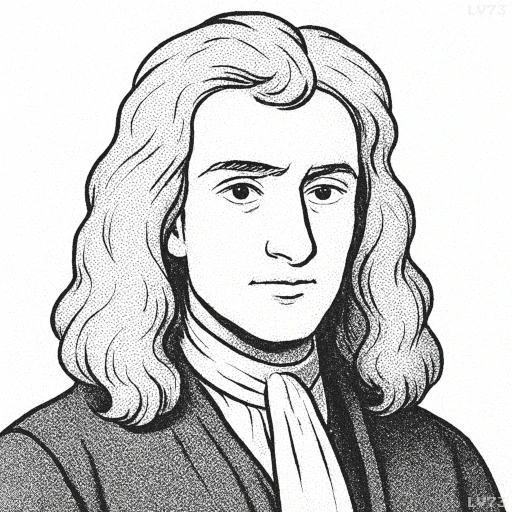“The hypothesis of matter’s being at first evenly spread through the heavens is, in my opinion, inconsistent with the hypothesis of innate gravity without a supernatural power to reconcile them, and therefore, it infers a deity.”

- January 4, 1643 – March 31, 1727
- Born in England (UK)
- Natural philosopher, mathematician, physicist, astronomer, theologian
table of contents
Quote
“The hypothesis of matter’s being at first evenly spread through the heavens is, in my opinion, inconsistent with the hypothesis of innate gravity without a supernatural power to reconcile them, and therefore, it infers a deity.”
Explanation
In this quote, Isaac Newton is addressing the apparent inconsistency between two scientific ideas: the uniform distribution of matter in the early universe and the concept of innate gravity. Newton argues that if matter were evenly spread across the heavens, it would be difficult to explain how gravity—an attractive force—could act in a way that leads to the formation of celestial bodies, like stars and planets, without some form of supernatural intervention. He suggests that the gravitational force could not account for the order and structure of the universe without a divine being to guide or reconcile these forces. In this way, Newton proposes that the existence of gravity and the structure of the cosmos imply a deity who established the laws of nature.
Newton’s view reflects the religious undertones that often accompanied scientific inquiry in the 17th century. While Newton is considered the father of classical physics and the scientific method, his thinking was deeply influenced by his Christian faith. He believed that the natural world and its intricate laws, including gravity, were part of a divinely ordered system, established by a creator. This view aligns with Newton’s broader perspective that the universe was governed by mathematical laws that reflected a rational, intelligent design.
In modern times, Newton’s assertion that the laws of nature infer a deity contrasts with contemporary scientific thought, which typically avoids supernatural explanations in favor of empirical and naturalistic accounts. However, his reflections on the nature of gravity and the origin of the universe continue to spark discussions about the intersection of science and philosophy. For example, in cosmology and theoretical physics, questions about the origin of the universe, such as the Big Bang, continue to challenge our understanding of cause and purpose. Newton’s emphasis on the necessity of a creator to explain the order of the cosmos remains an important historical moment in the ongoing conversation between science and faith.
Would you like to share your impressions or related stories about this quote in the comments section?

